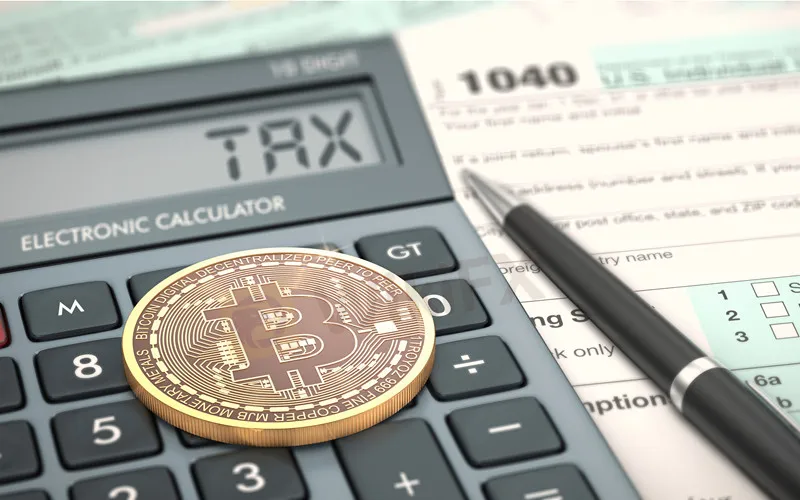简体中文
繁體中文
English
Pусский
日本語
ภาษาไทย
Tiếng Việt
Bahasa Indonesia
Español
हिन्दी
Filippiiniläinen
Français
Deutsch
Português
Türkçe
한국어
العربية
Why Additional Tax Laws Surrounding Cryptocurrency AND How?
Abstract:In March of 2021, the IRS issued new guidance that affects individuals or companies that transact online trading of cryptocurrency.

For the 2020 tax season, the U.S. Internal Revenue Service (IRS) made it clear they were serious about cracking down on cryptocurrency profits. In March of 2021, the IRS issued new guidance that affects individuals or companies that transact online trading of cryptocurrency. They also moved the information about cryptocurrency from a schedule to the first page of the 1040 form. This would remove any questions about the seriousness of filing.
What is the IRS Trying to Determine?
The new information that the IRS has provided is rife with convoluted language that might be difficult for the layman to understand. This language has removed the terminology that says that you need to disclose where you purchase cryptocurrency with fiat currency during the year. The new language added by the IRS tries to determine if you bought cryptocurrency and subsequently sold your cryptocurrency during the taxable year. The ultimate goal of the IRS in their new 2021 draft about cryptocurrency is to avoid going through the returns of individuals who have purchased cryptocurrency as a buy and hold strategy. Instead, they are looking for individuals or companies that have taken profits or losses on their cryptocurrency trades. According to the frequently asked questions listed by the IRS, a capital asset such as cryptocurrency is not subject to a taxable event unless a realized gain or loss is created.
Dealing with Tax-Exempt Accounts
Online trading and mining in a U.S. tax-exempt account is another situation altogether. There does not seem to be any clear-cut information on how the IRS will view profitable transactions held in a tax-exempt account. These types of accounts include a plethora of funds that can be used for retirement. While the purchase and subsequent sale of a cryptocurrency as a capital asset seem more clear-cut, other issues are gaining scrutiny from the IRS. Companies are now providing investors with an opportunity to receive cryptocurrency mining income directly into their IRA.
For this process to work, an IRA owner needs to purchase mining assets using their IRA funds. This situation would mean that you have access to a self-directed IRA. Compass Mining is now allowing individuals to buy cryptocurrency mining software directly from their retirement account. This software will enable an individual to mine bitcoin or Litecoin into their IRA. Once this is accomplished, the mining income that comes into your IRA will become rental income or dividend income, which is non-taxable revenue generated in your retirement account in the United States.
While this concept seems convincing, not everyone believes that the IRS will accept the income from mining as tax-except revenue. A type of transaction not allowed within an IRA is one where the owner provides services between the owner and the IRA plan. The Internal Revenue Service does allow miners running a business to take business deductions to reduce the taxable income from mining, but these deductions are not available in an IRA.
The Bottom Line
The upshot is that there are many issues that the IRS is tackling to help smooth the tax process surrounding digital coins. Since cryptocurrencies are gaining further widespread use, the need for a straightforward cut tax process has become more imperative. In 2021, the IRS moved the information surrounding the tax consequences to the front page of the U.S. 1040 tax form. This move by the Treasury was a clear sign that the agency was taking tax evasion surrounding cryptocurrency very seriously.
The focus will be finding individuals that generate a realized gain while online trading cryptocurrencies. So, if you purchase a digital currency and then sell it for a profit or loss, you will have a tax obligation.
The IRS is also focusing on dealing with cryptocurrency profits regarding retirement accounts, such as an Individual Retirement Account (IRA). Several self-directed IRA accounts allow you to trade several different types of assets. Some IRA accounts will enable you to purchase digital coin mining software. The claim is that you can use the mining software to generate revenue and share that revenue as rent or dividends. This activity would allow you to create these gains tax-free, which seems to be a bone of contention for the IRS.
- END -
Catch up with the last market trend, broker updates, VPS info and more on WikiFX!

Disclaimer:
The views in this article only represent the author's personal views, and do not constitute investment advice on this platform. This platform does not guarantee the accuracy, completeness and timeliness of the information in the article, and will not be liable for any loss caused by the use of or reliance on the information in the article.
Read more

This unknown cryptocurrency soared by 164,842% in hours, only to crash 99%
This unknown cryptocurrency soared by 164,842% in hours, only to crash 99%

Here’s why cryptocurrency crashes on weekends
Here’s why cryptocurrency crashes on weekends

China sends another warning on cryptocurrency risks amid ‘wild fluctuations’
China sends another warning on cryptocurrency risks amid ‘wild fluctuations’

What is the future for the new Facebook’s cryptocurrency Libra?
What is the future for the new Facebook’s cryptocurrency Libra?
WikiFX Broker
Latest News
Two Californians Indicted for $22 Million Crypto and NFT Fraud
RM62k Lost Investment Scam After Joining XRP Community Malaysia on Telegram
Victims of Financial Fraud in France Suffer Annual Losses of at Least €500 Million
WikiFX Review: Is Ultima Markets Legit?
Colorado Duo Accused of $8M Investment Fraud Scheme
What Impact Does Japan’s Positive Output Gap Have on the Yen?
Macro Markets: Is It Worth Your Investment?
Trading is an Endless Journey
Malaysia Pioneers Zakat Payments with Cryptocurrencies
FCA's Warning to Brokers: Don't Ignore!
Currency Calculator


